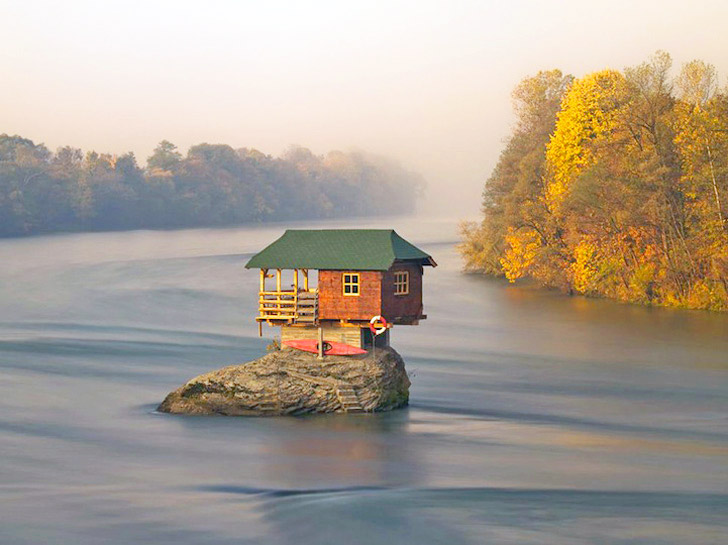Many people during their lifetime move from one property to another and if you are an owner quite often buying and selling around the same time is a necessity. The questions arise about what to do first, buy or sell as well as what everyone should know when planning on buying and selling at the same time.
There are many factors that will influence this decision.
Market condition.
Typically, in real estate the markets are classified as sellers, balanced and buyers market.
Sellers market – properties selling quickly, there are more buyers than sellers, many properties are receiving multiple offers.
Balanced market – there is a similar number of buyers and seller, reasonably priced properties sell around market value within a fairly short amount of time after being listed, typically few weeks.
Buyers market – there is plenty of inventory on the market and not enough buyers to absorb it, buyers have a choice of properties which take a long time to sell.
In a balanced or buyers market chances are you would want to sell the property first and buy a new one later, the assumption is that it is harder to sell a property than it is to buy. In the sellers market if you sell first you may have a hard time buying the new property, it may take you much longer than expected, you may pay more or make a rush decision just to be able to buy something.
Type of property.
The second important factor is the type of property you are buying, and the type of property you are selling. Will it be fairly easy to find a property I am looking for, and will it be fairly easy to sell the current property.
Here are few examples of properties that are harder to sell:
- Run down with lots of work required
- Regulated by authorities such as heritage, environmental, on flood plains, protected forests, and so on.
- Bad location, on a busy street or backing onto a busy street, commercial plaza etc.
- Expensive properties where the pool of buyers is limited.
- Unique properties where the pool of buyers is limited.
- Stigmatized properties (close to cemetery, unnatural death occurred on the property, grow up etc).
- Condo that has a very high monthly fees or has significant issues as per status certificate.
The easiest properties to sell are the once that most buyers are looking for, typical subdivision house, a condo that is not very expensive, a property that doesn’t require a lot of work.
On the other hand if your desired property to purchase is very unique, or you have a specific requirements (a specific area within 5 minutes from your mother in law, facing south, backing onto a conservation area, fully renovated, as an example), this will also need to factor into your decision making.
Have your house ready to sell asap.
If you are buying the new property first, have the existing property ready to be listed asap, that means clean up, decluttered, repairs done, agent hired and so on. Even once you have it done it may take a week or two to have it listed because good professional photographers may be busy. We never know what can happen and markets sometimes turn very quickly due to seasonality or unexpected events, and sometimes it will mean the markets will soften.
Unexpected events are by definition unexpected, but you could plan so you don’t list during the seasonally slower times such as December or August.
If you buy first set a realistic expectation for the selling price of your home.
If you are buying before selling set a realistic expectation for the selling price of your current property and account for the worst-case scenario. There are number of options available to do the research, it’s common for the sellers to value their properties more than the neighbours as there is often emotional attachment involved, and sometimes the upgrades or pros of the property don’t translate into a higher selling price. Be prepared for the worst and if it sells for more it will be a nice bonus.
The worst-case scenario.
Truly the worst-case scenario is that you can’t sell your property for anywhere near what you were expecting after purchasing the new one, and you are stuck with two properties for an extended period of time. Before deciding to buy a property please check your finances and discuss with the lender if there is a possibility of keeping the old property (as investment for example) and carry both properties.
Moving in with family or friends.
If you sell first, and you happen to be in the sellers market, you may not be able to buy the new property before the sale of the old one closes, and you will need to find a place to crash. If there is a family near by or close friends that can help you out it will be easier, but in our opinion, this may also play into your decision-making process especially if you have children. Moving twice is less fun than moving once and moving is not fan at all. You will also need to account for storage.
Unexpected events.
That’s something we can’t predict, that’s why to limit the risks from that perspective you should buy and sell within a short period of time regardless of what comes first, extending the periods between both transactions increases the potential of something unexpected happening.
Buying first and renovating.
Another factor coming into play may be when you are planning to buy a property with significant renovations required and you want to move in when this is done. If that is the case, you may consider buying first.
Financing, mortgages and penalties.
If financing is not required you may skip this paragraph, for most of us this will be a factor.
If your current mortgage is variable is risks of breaking the mortgage are not that big, typically a penalty to break the variable mortgage is 3 months’ worth of interest. Fixed mortgages quite often have much higher penalties and you need to check your contract or discuss the penalties with your lender if you decide to break the mortgage.
Your contract will also state if your mortgage is portable and can be moved from your current property to the new one, typically the lenders give you 90 days to port the mortgage, that means if you don’t buy a house with the closing of 90 days or less from the sale of your current house you will need to break the mortgage and pay penalties.
Bridge loan.
In many cases, if at any given point of time you will be owning two properties (happens quite often when the closing on the new property is prior to the closing on the old property) you will need to have a financing arranged on both properties for a short period of time., this is called a bridge loan and it comes at a cost. Please discuss the details with your mortgage broker or a lender to ensure you are aware of all fees, interest charges and so on.
Renting from the new buyer.
In some cases the buyer of your old property may agree to rent the property to you until you find another one, not everyone will agree to it but it’s worth asking if you need to.
Change of the closing dates.
Once both of your transactions are firm and the dates don’t align the way you would like you may approach the other parties in your transaction to see if they would be agreeable to amend the closing date for the transaction. It’s not always possible but it doesn’t hurt to ask.
Don’t forget about the deposit.
Every real estate purchase requires a deposit, and in a hot sellers market the deposit amounts can be significant, when completing two transactions around the same time don’t forget about having the cash available for the deposit since you won’t be able to use the house proceeds for it.
Selling and buying a property at the same time is a stressful endeavor regardless what you decide to do first, but knowing the circumstances, market conditions, potential costs and outcomes may make the decision making process a bit easier.







Post a comment